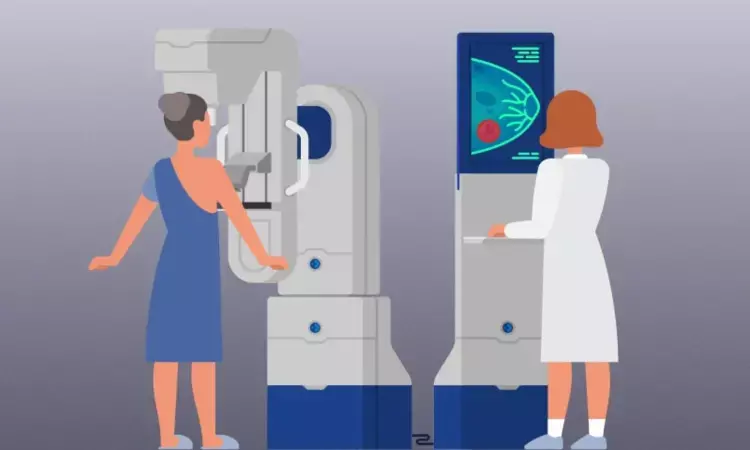- Home
- Medical news & Guidelines
- Anesthesiology
- Cardiology and CTVS
- Critical Care
- Dentistry
- Dermatology
- Diabetes and Endocrinology
- ENT
- Gastroenterology
- Medicine
- Nephrology
- Neurology
- Obstretics-Gynaecology
- Oncology
- Ophthalmology
- Orthopaedics
- Pediatrics-Neonatology
- Psychiatry
- Pulmonology
- Radiology
- Surgery
- Urology
- Laboratory Medicine
- Diet
- Nursing
- Paramedical
- Physiotherapy
- Health news
- Fact Check
- Bone Health Fact Check
- Brain Health Fact Check
- Cancer Related Fact Check
- Child Care Fact Check
- Dental and oral health fact check
- Diabetes and metabolic health fact check
- Diet and Nutrition Fact Check
- Eye and ENT Care Fact Check
- Fitness fact check
- Gut health fact check
- Heart health fact check
- Kidney health fact check
- Medical education fact check
- Men's health fact check
- Respiratory fact check
- Skin and hair care fact check
- Vaccine and Immunization fact check
- Women's health fact check
- AYUSH
- State News
- Andaman and Nicobar Islands
- Andhra Pradesh
- Arunachal Pradesh
- Assam
- Bihar
- Chandigarh
- Chattisgarh
- Dadra and Nagar Haveli
- Daman and Diu
- Delhi
- Goa
- Gujarat
- Haryana
- Himachal Pradesh
- Jammu & Kashmir
- Jharkhand
- Karnataka
- Kerala
- Ladakh
- Lakshadweep
- Madhya Pradesh
- Maharashtra
- Manipur
- Meghalaya
- Mizoram
- Nagaland
- Odisha
- Puducherry
- Punjab
- Rajasthan
- Sikkim
- Tamil Nadu
- Telangana
- Tripura
- Uttar Pradesh
- Uttrakhand
- West Bengal
- Medical Education
- Industry
Increased mammographic breast density associated with cancer recurrence, suggests study

A new study from the Malmo Diet and Cancer Study revealed significant findings that could transform the way breast cancer survivors are monitored post-treatment. The findings were published in the recent edition of The Breast journal.
Breast cancer remains a major health challenge throughout the globe, with ongoing research focusing on how to better predict and prevent recurrences. This study spanned from 1991 to 2014 and focused at mammographic features such as breast density, tumor appearance and mode of detection, along with tumor size, axillary lymph node involvement and histological grade to understand their impact on recurrence-free survival (RFS).
The study analyzed data from a total of 1,082 women who were treated for invasive breast cancer by discovering that the individuals with higher breast density at the time of diagnosis were more likely to experience cancer recurrence. The findings indicate that women with high breast density are at a increased risk of recurrence with a adjusted hazard ratio of 1.32. This risk almost doubled to an adjusted hazard ratio of 2.12 among women whose breast cancer was initially detected through screening.
The analysis excluded 34 women due to metastatic disease at diagnosis or incomplete data and utilized Cox regression methods to establish these associations by providing a clear picture of how mammographic features can impact breast cancer outcomes. Also, no direct association between the mammographic appearance of the tumor and recurrence was observed.
The study highlighted the importance of these findings to identify the links between mammographic features and breast cancer recurrence can significantly aid in designing patient specific follow-up strategies for survivors which could potentially lead to earlier detection of recurrences.
The outcomes of this research underline the need for personalized surveillance strategies that consider individual mammographic features at diagnosis. Through this process, it may be possible to improve the long-term outcomes for breast cancer survivors for the individuals who were identified at higher risk due to their breast density.
Healthcare professionals and policymakers are hopeful that these insights will lead to more effective follow-up care protocols that can help in reducing the rate of breast cancer recurrence and improve survival rates. Overall, this study is a step forward in the breast cancer management by offering potential to enhance the survivorship care plans based on more personalized data.
Reference:
Lång, K., Sturesdotter, L., Bengtsson, Y., Larsson, A.-M., & Sartor, H. (2024). Mammographic features at primary breast cancer diagnosis in relation to recurrence-free survival. In The Breast (p. 103736). Elsevier BV. https://doi.org/10.1016/j.breast.2024.103736
Neuroscience Masters graduate
Jacinthlyn Sylvia, a Neuroscience Master's graduate from Chennai has worked extensively in deciphering the neurobiology of cognition and motor control in aging. She also has spread-out exposure to Neurosurgery from her Bachelor’s. She is currently involved in active Neuro-Oncology research. She is an upcoming neuroscientist with a fiery passion for writing. Her news cover at Medical Dialogues feature recent discoveries and updates from the healthcare and biomedical research fields. She can be reached at editorial@medicaldialogues.in
Dr Kamal Kant Kohli-MBBS, DTCD- a chest specialist with more than 30 years of practice and a flair for writing clinical articles, Dr Kamal Kant Kohli joined Medical Dialogues as a Chief Editor of Medical News. Besides writing articles, as an editor, he proofreads and verifies all the medical content published on Medical Dialogues including those coming from journals, studies,medical conferences,guidelines etc. Email: drkohli@medicaldialogues.in. Contact no. 011-43720751


